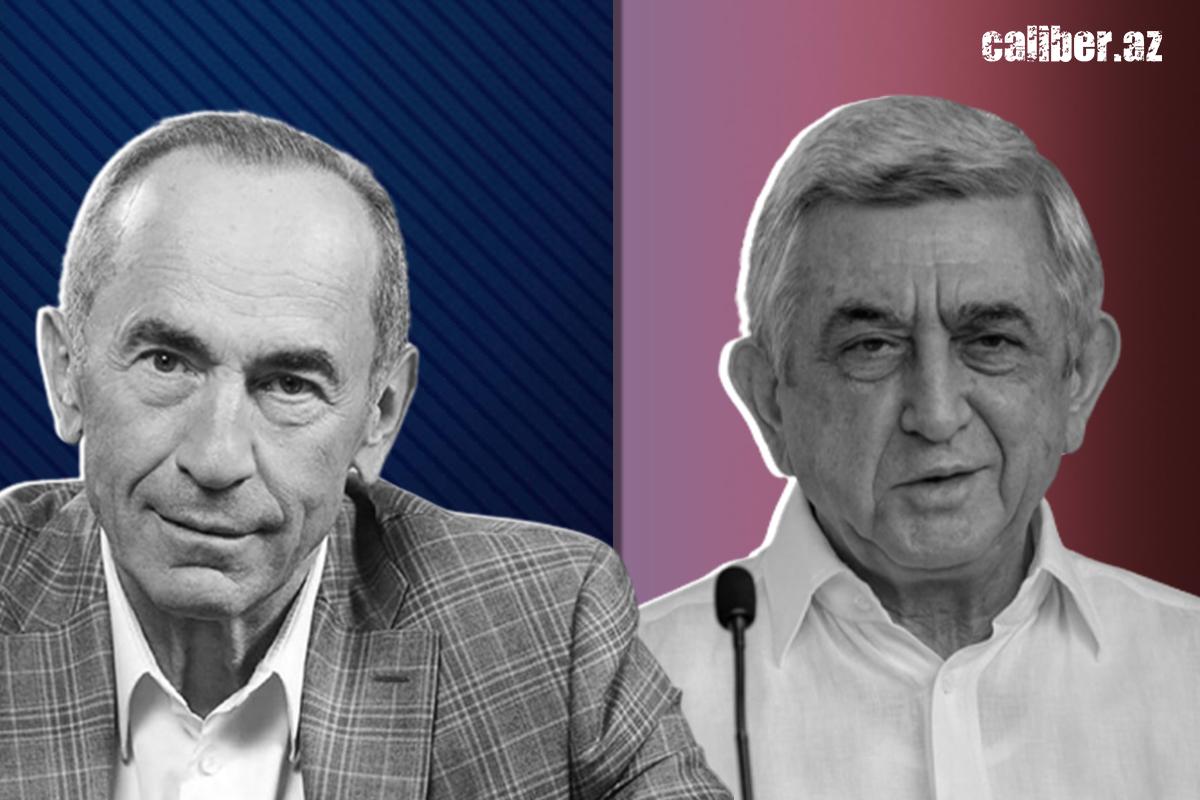The union of sword and altar Opposition and Church vs Pashinyan
Amid the intensifying conflict between the Armenian Apostolic Church (AAC) and Prime Minister Pashinyan, the opposition has decided to take its shot at the premier. Armenian media affiliated with revanchist circles have reported that the opposition faction I Have Honour in Armenia’s National Assembly has nominated Davit Hambardzumyan, head of the Masis community, as a candidate for prime minister within the framework of an initiated impeachment process.
"Taking into account the statement by the Executive Body of the Republican Party of Armenia, the I Have Honour faction, at a session held on June 7, unanimously decided, in accordance with the constitutional law 'Rules of Procedure of the National Assembly,' to submit a proposal of no confidence in the prime minister by nominating Davit Hambardzumyan — head of the Masis community and a member of the Council of the Republican Party of Armenia," wrote the head of the faction, Hayk Mamijanyan, on social media.
Under Armenian law, in addition to the requirement that the initiators of an impeachment process must present their own candidate for prime minister, at least 54 out of 107 members of parliament must vote in favour of a no-confidence motion against the head of government. However, in the current parliament, an absolute majority is held by the Civil Contract party.
In fact, the scent of impeachment has long hung in the air of Armenia’s domestic political life. In the spring and summer of last year, the country witnessed mass protest rallies initiated by the opposition and the AAC, with demonstrators calling for Pashinyan’s resignation. The entire spectacle was led by Archbishop Bagrat (Galstanyan). These events unfolded against the backdrop of reports concerning the delimitation of the Azerbaijani-Armenian border and the return of four villages in the Gazakh district to Azerbaijan. However, the protests ultimately led nowhere — Pashinyan remained in power.

However, the idea of removing the prime minister was never abandoned. In early May of this year, the chairman of the United National Constitutional Party, Hovik Aghazaryan, announced that the opposition had launched an impeachment initiative against Pashinyan.
"I am authorised to declare that we are initiating the procedure of a vote of no confidence (impeachment) against the Prime Minister of Armenia, Nikol Pashinyan," he wrote on his Facebook page.
Then a scandal erupted between the prime minister and the Armenian Apostolic Church, with both sides unrestrained in their language and generous with threats. Now, this confrontation has drawn in Armenia’s second and third presidents — Serzh Sargsyan and Robert Kocharyan — who, under the influence of revanchist ideas constantly echoed in their minds, are willing to do anything to escalate tensions in the country.
As early as April, Serzh Sargsyan confidently told journalists that Pashinyan would not last until the upcoming elections, and did not hide that the opposition has a concrete plan to remove him from power.
“The authorities won’t have time to rewrite the constitution and remove the provisions on the ‘Declaration of Independence,’ no matter how much they want to,” he said with a sarcastic tone at the time.
It is a well-known fact that Serzh Sargsyan and Robert Kocharyan are staunch opponents of constitutional amendments in Armenia that would remove territorial claims against Azerbaijan. They were among the first to harshly criticise Pashinyan when he acknowledged Karabakh as part of Azerbaijan.
Thus, the emerging picture is this: for the ruling party to secure victory in the parliamentary elections scheduled for June 7, 2026, the prime minister and his team face at least two critical tasks — to pacify the militant Armenian clergy, which enjoys strong support from the influential diaspora abroad, and to neutralise their main political opponents.
However, in such political turbulence, with Pashinyan caught between the bloodthirsty Armenian Church and the opposition forces, this is an extremely difficult, if not nearly impossible, challenge.

Given the current situation, a prudent step by the Armenian authorities would be to extradite the war criminals Serzh Sargsyan and Robert Kocharyan to Azerbaijan. Since 2022, they have been wanted by the Military Prosecutor’s Office of the Republic of Azerbaijan. They must undoubtedly be held criminally accountable for numerous war crimes in Karabakh — including genocide and ethnic cleansing against the Azerbaijani people, as well as violations of the Azerbaijani Constitution.
The criminal activities of Armenia’s second and third presidents are further confirmed by the testimonies of the accused in the ongoing trial in Baku. This serves as a strong argument for Azerbaijan before the international community and obliges the Armenian leadership to comply with the norms of international law.
By taking this step, Pashinyan could ease his task of retaining power and, to some extent, restore Baku’s trust in Yerevan’s commitment to peaceful approaches — which, as is well known, have largely remained declarative. Baku’s key demands, including the dissolution of the OSCE Minsk Group and constitutional amendments in Armenia removing territorial claims against Azerbaijan, have still not been fulfilled by Armenia. There are only words, but no concrete actions.
As Azerbaijan has repeatedly emphasised at the highest levels, without these conditions being met, no peace agreement will be signed — and that is a definite, non-negotiable stance.








